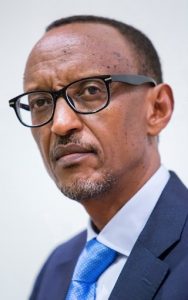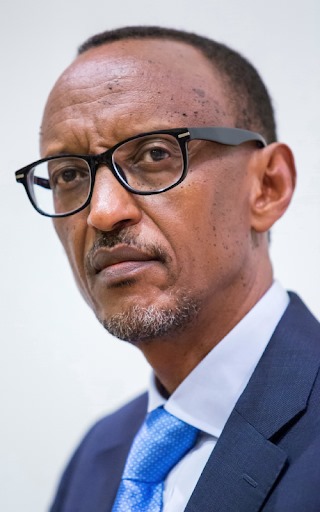 by Alagi Yorro Jallow
by Alagi Yorro Jallow
Part II
Mamudu: History has a habit of repeating itself. Strongmen are now making a resurgence in the world arena. The autocratic leadership styles of Donald Trump of America, Vladimir Putin of Russia, and Xi Jinping of China are back in fashion. Others like Narendra Modi of India, Mahathir Mohamad of Malaysia, and Recep Erdogan of Turkey have presided over rapid economic growth in their countries. There is talk of a benevolent dictatorship being the panacea for Africa’s problems.
However, the concept is alien in Africa. With few exceptions, most of the continent’s leaders do not possess a political appeal based around decisive leadership and selflessness of purpose. If anything, those with unfettered powers become tyrants consumed with self-aggrandizement, giving in to the individual moment’s sentient pleasures against the long-term well-being of the nation.
Mamudu: A strongman is different from a strong leader. A strongman is “a leader who rules by the exercise of threats, force, or violence.” The likes of Sudan’s Omar Hassan al Bashir, Zimbabwe’s Robert Mugabe, Uganda’s Idi Amin Dada, Zaire’s Mobutu Sese Seko the Gambia’s Yahya Jammeh, Museveni of Uganda. Paul Kagame of Rwanda as well John Mafuguli of Tanzania – these are strongmen of governance, leaving little to be desired. However, Africa does need strong leaders; men and women who will build strong institutions.
Mamudu: The former President of the United States of America, Barack Obama, while addressing the Ghanaian Parliament during a courtesy visit to Ghana in 2009, remarked as follows:
“No country is going to wealth if its leaders exploit the economy to enrich themselves, or police can be bought off by drug traffickers. No business wants to invest in a place where the government skims 20 percent off the top, or the head of the Port Authority is corrupt. No person wants to live in a society where the rule of law gives way to the rule of brutality and bribery. That is not a democracy, that is tyranny, and now is the time for it to end. Africa does not need strong men; it needs strong institutions”.
Today, the Gambia is no longer the land of the smiling coast. Life frowns upon everyone’s very existence. At every level of government, what has been on the burner is pure politics and the absence of a strong independent democratic institution. However, it is not strictly the problem of the persons running the system. It is a deeper, systemic problem. If we change our ruling parties a million times, we will likely get the same results. Lack of strong democratic institutions and strong leadership is driven unworkable for us, and it is not working for us. It kills and so must yield for something less expensive, more accountable, more flexible. Strong men have been ruling Africa since the departure of the colonial masters. Rather than strong men, Africa needs visionary leaders.
It is an African problem. It is great to be born; it is better to know why, and that why the African man continually seeks to paint shadows in the dark. He is a mismanaged patient drifting from one infirmary to the other. He cannot get well unless he gets the right attention at the right time from competent caregivers. Is it not funny that even lazy, lousy Africa’s counterparts work very hard to set themselves apart from the other ‘sub-Saharan’ parts of Africa? They say this repeatedly in cryptic figures of speech and with ugly, bloody body languages. Moreover, is it their fault? Blame that ‘destiny’ that has repeatedly given dark Africa bumbling leaders – cooks who get handsomely paid for preparing watery, tasteless soups.
Barrack Obama said, “Africa does not need strongmen, it needs strong institutions.” This statement holds for the Gambia, going by the events of the last few months. The National Development Plan agenda upon which President Adama Barrow hopes to hinge his legacy is threatened by runaway corruption. The President, reacting in reforms and transitional justice, has not sought to crack the whip on corruption with expectant results from the Gambian population. Some view his actions as an assuaging of popular anger against institutionalized rot. For them, it is a long-overdue move against the culture of clientelist and patronage relationships that exist between politicians and the business community.
Mamudu: Sample this, a section of the media recently reported a loss of 35 million Gambian Dalasi at the Gambia National Road Authority( NRA), a state corporation. Before the publication of that sensationalist outburst, no attempt was made to get the views of senior management. No proofs of missing funds were provided, only unsubstantiated allegations and half-truths which sources say were leaked to the press by some disgruntled members of the Gambia government. This is perhaps what Donald Trump derisively refers to as “fake news.” However, even fake news must have some modicum of credibility. To put things in perspective, 35 million Dalasis is all the money allegedly lost in the infamous Banjul Road and Sewerage Project scandal. According to media reports, the NRA officials have been accused of collecting kickback deals worth millions of dalasis from contractors, who have been contracted to execute projects for the state. Some of the NRA officials are said to be on the of Haddim Gai, the Gai Construction Company’s CEO. Gai, has been contracted by the Barrow government to execute the 35 million dalasis Banjul road and sewage project. The project was never tendered for public bidding. Minister Bai Lamin Jobe quoted as saying that the Banjul project had been pre-financed by Haddim Gai, of the Gai Construction Company for the Banjul roads and sewerage construction lasting five years.
Mamudu: Finance Minister, Mamburry Njie, revealed at a press conference that of the 500 million Gambian Dalasi of COVID-19 Special Fund created precisely a month ago, D143 million was already spent. Section of Diaspora media questioned the Finance Minister to provide the public with a statement of what the 143 million Gambian Dalasis spent on? Still, there is no official explanation from government officials.
Mamudu: Then again, In the Gambia, the presumption of innocence is a constitutional right and a human rights-based on the presumption of one’s innocence until proven guilty. Many lawyers aver that a simple test for prosecution should be based on justice and the rule of law and whether there is a likelihood that an accused person will be granted a fair trial if the justice department official is guilty of prosecutorial bias and high tech lynching by social media mobs. It is alleged that magistrates acted on instructions from senior judicial officers. They may have given in to pressure from the public, a strange case where the public has appropriated the powers to pass judgment and one where a magistrate has ceded those powers. This also ties in with an Executive attempt to subjugate the Judiciary, which is seen as the drastic reduction of its budget. As it stands, even judges now have no recourse to the security of tenure.
There is an urgent need to strengthen state institutions. A report on the financial autonomy of the Judiciary should be brought down the shelf and dusted. This is the sort of progressive “revisiting” Gambians need. Procurement officers and senior management teams are often indentured to rogue boards with vested and often illegal interests. Such boards should be looked at to avoid embarrassing fiascos, such as what happened at the Gambia Road Authority recently.
Moreover, in the interests of equity, stepping aside should be on cogent evidence of wrong-doing and not on spurious allegations. Where there is deliberate opacity of information, the benefit of the doubt should be accorded to the accused. Prosecuting hearsay in the court of public opinion can only enhance, rather than detract, the tremendous trust deficit in our institutions.
Mamudu: Then, some feel that the lack of combating to crackdown on endemic corruption does not target putrefaction in public institutions. First, it is perceived to be an attempt to settle political scores or to wrest control of key institutions for personal gain. According to this school of thought, core Gambian public institutions, including the civil service, civil society organizations, intelligence community, the Judiciary, the Legislature, and the media, have been sucked into a Rubik’s cube of conflicting interests. These interests have turned erstwhile friends into bitter adversaries and vice-versa.
Indeed, the need for strong institutions cannot be overemphasized. Therefore, upon the strong leadership, the second focal objective in these last two years of the Barrow administration should be to strengthen institutions. We must strengthen institutions of justice by adherence to the rule of law and respect for court judgments. Those who desecrate the courts must be brought to book to restore the sanctity and independence of the Judiciary.
Mamudu: We must also strengthen institutions of accountability by enforcing transparency in government revenue and expenditure. Furthermore, we must strengthen institutions of human development by laying the groundwork for effective education and policies. Finally, we must strengthen institutions of economic growth through geo-economic re-organization as well as pragmatic fiscal and monetary policies.
To strengthen these institutions, we must codify best practices while embracing innovation. We must also run inclusive structures that bridge transgenerational and gender gaps to ensure that the baton of success is passed on from one generation to another.
Furthermore, as the government of President Barrow ushers us into the second decade of the 21st century, the third pivotal objective of governance should be to build a robust post-Barrow legacy facilitated by accurate succession. In this regard, the Gambia must learn from some of the best succession examples in recent history. Therefore, even as we build institutions of democratic governance, a critical responsibility that history has bestowed on President Barrow at this turning point in our journey to nationhood is to institutionalize systems of accurate succession that will build and sustain the Gambia we desire. We spoke about the enemies of the Gambia. Who are the real enemies of the country?
Mamudu: Our nation’s true enemies are found at every level of government, from the local to the state levels, and in every arm of government. They can also be found on the streets, in households, and in the marketplace. The true enemies of the Gambia are those who, paraphrasing the words of George Washington, seek to build their greatness upon their country’s ruin. As it is with the leadership, so it is with the citizenry. Leaders and citizens have their citizenship in common; they are drawn from among us and reflect our basest instincts or our highest ideals at every level of government.
Mamudu: In the Gambia, the vast majority of our people regularly take turns perpetuating the cycle of corruption as beneficiaries or benefactors. These enemies in citizens’ clothing are those who choose to be spectators while the nation goes down the drain on their watch; those perverts on the pulpit who hide under togas of godliness to manipulate the vulnerable; those economic behemoths who window dress their underhandedness with filthlanthropy; those who are perpetual “not on the seat” because they cannot “come and go and die;” those who rob, rape, rape, pillage, abduct, murder, dismember in the name of hunger or misguided rage; those who sell their votes or connive with political bandits to short-change their children’s children; those who partake of loot and looters from the same ethnic group or religious organization; those who say of the looters, “We know the thieves, but the thieves are our thieves.” These are the true enemies of the Gambia.

